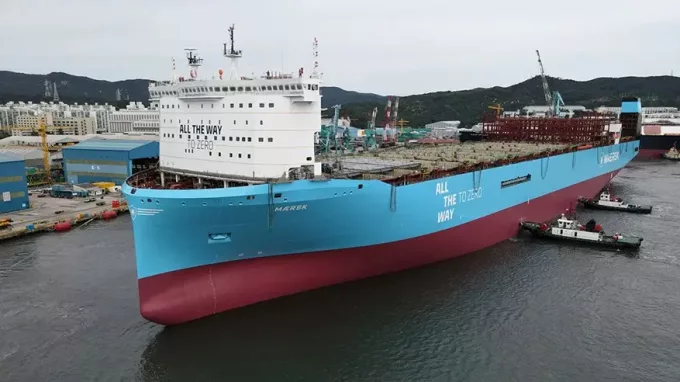Congestion fear as US west coast ports brace for transpacific cargo surge
The demand spike on the transpacific has prompted concerns of congestion and cargo bottlenecks at ...

China’s apparent antipathy to greening international shipping may be changing course, after a domestic green methanol developer, Goldwind, struck a major deal with Maersk.
Announcing the news, AP Moller-Maersk said it had reached a long-term offtake agreement for annual volumes of 500kt ...
Four crew members still missing as Wan Hai 503 continues to burn
Predatory rivals circle as the ripples from DSV's Schenker buy widen
MSC Elsa crew face criminal probe, as Wan Hai 503 firefighters battle on
Latest Israeli attack on Iran a threat to box ships in Straits of Hormuz
Industry concerns rise after yet another box ship on fire off Indian coast
'It's driving us mad', say forwarders as US court fails to end tariff turmoil
Transpacific rates ease as capacity boost proves too much for trades to digest

Comment on this article